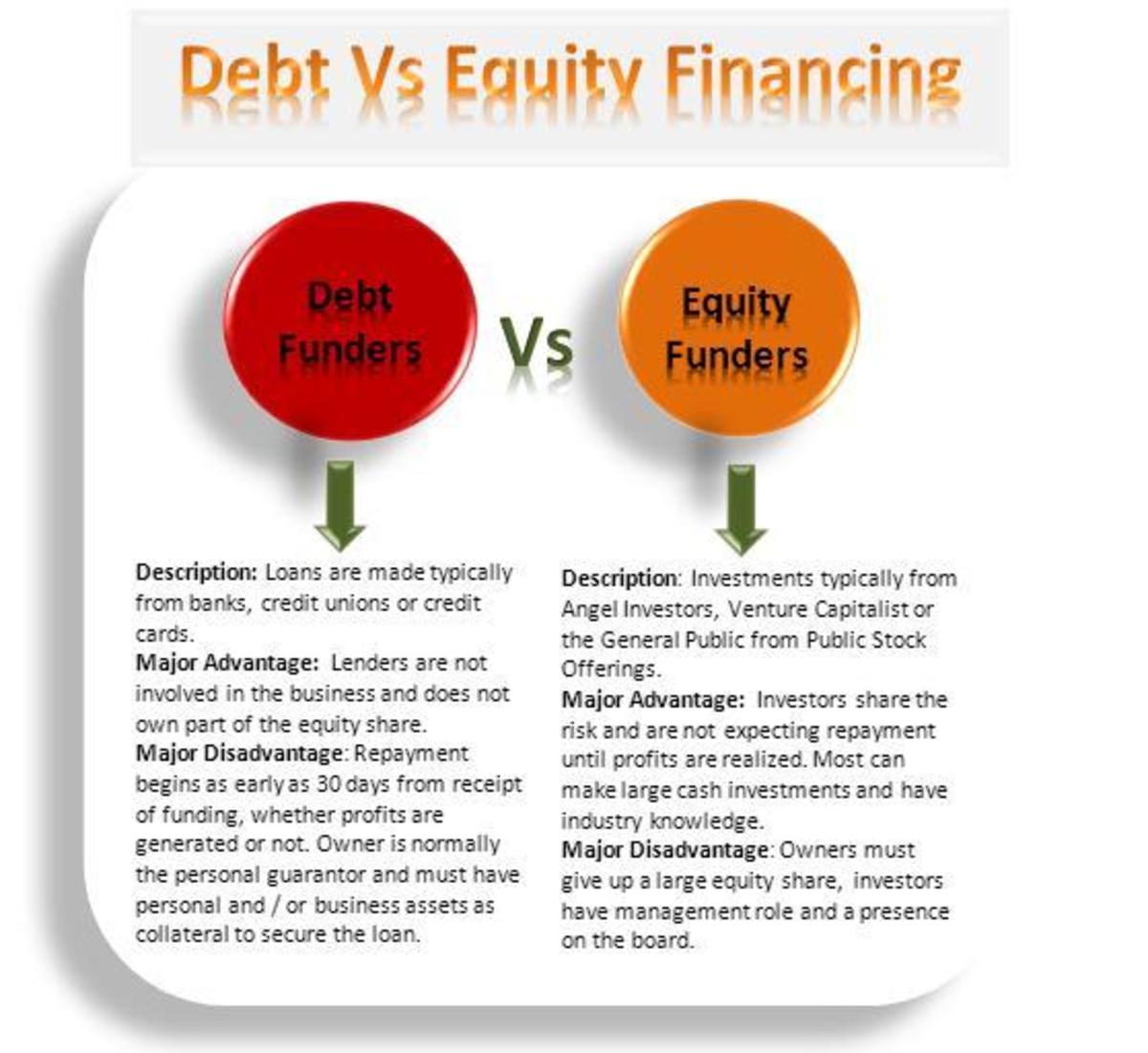Apartment Financing In The New Normal
Introduction: Apartment Financing in the New Normal
Apartment Financing in the New Normal
Commercial Real Estate Finance Has Changed; What Credit Officers Look For Today
Today and going forward, lenders have more deals on their desk than ability to lend. The limitations could be the amount of cash budgeted for loans this year or quarter or month. If not that, the limiting factor is the amount of people time available for performing due diligence, deciding on, documenting, and servicing loans. Adding more credit people is not as easy as hiring a qualified candidate, though there are countless well-prepared super skilled commercial credit people available to start work tomorrow morning. Rather, it takes time for a new professional to acclimate to the credit culture of an unfamiliar commercial real estate loan shop.
So, the key to success is to present a better loan scenario than the next both in terms of borrower qualifications and property quality, and in being able to document all that wonderfulness. A credit analyst will read through the pile of deals on the desk and the floor and the credenza, with an eye toward weeding out the obvious duds. Good service is considered to be a quick “No, but thanks for the look!” where as poor service is an initial look with a “No!” after four weeks.
Success as a borrower is not getting “Noed!” initially, but getting the second look. A list of questions from a credit officer is not a hassle, not an invasion of privacy, not searching for a reason to decline; it’s an indication of genuine interest in making the loan. So, treat it like gold, because it is.
It’s been said that the first thing a woman notices about a man is his hands, and she forms her initial impression of him with that first glance. What does a credit analyst or officer first look for in a borrower? The key word is “robustness” in terms of the individual qualifications and financial position, and the property itself.
Some keys to success include:
1) Be profitable.
2) Have stable steady income.
3) Maintain liquidity; keep cash reserves.
4) Keep properties in good condition.
5) Maintain good personal credit.
6) Be realistic in your expectations of lenders.
7) Learn about commercial finance.
Let us consider each in a separate page.
Be Profitable
• Be profitable: Pay some income tax! Oh, did you think the ultimate goal was to not pay income tax? Well, excuuuuuuse me! I understand, because I struggle with tax also. The thing to keep in mind is that paying tax is a sign of robustness, strength, and wherewithal. It’s a better sign of success than your address or your hood ornament, because there is less wonder and suspicion about where you got the money for those comforts. The most attractive borrowers are those who take all the deductions and then still pay some income tax because they are indeed the most prosperous.
In the interests of profitability, keep rents at or near market. Some owners think they are doing a good thing renting far below market, then find they have difficulty at refinance or sale time because the property is not attracting a lender for the loan needed. Such practice makes the investor appear meager in terms of means, making him/her unattractive as a borrower. This can lead to a foreclosure due to the inability to refinance, or the inability to sell at a price high enough to pay off existing debt.
Be realistic with expenses. It does no good to over state expenses to make the property appear to not have taxable income. Credit officer knows what a property takes to operate and maintain and if ownership has been spending too much, will wonder about the property management skills.
Generally, credit officers need to see that an investment property owner has additional sources of income sufficient to support the household. This income would be outside the income produced by the income property being financed. The point is that credit officer does not want the subject investment property to be the sole support for the personal lifestyle. Commonly, an investor will have more than one additional source of income. It’s important that all sources show profit, as to have one or more showing losses causes worries. If a business venture is losing money, credit officer will fear that it could end up sucking cash from the Subject property, compromising its ability to make its payments and accumulate reserves.
All these measures portend the payment of income tax aside from AMT. Payment of income tax makes an investor attractive to a credit officer, and commands a measure of respect. The explanation that an investor is paying no income tax owing to a really smart tax accountant does not command respect.
Have Steady Income
· Have stable steady income, income that is at least similar each year and preferably increases a little each year to keep up with inflation. This is much more preferable than income spikes and valleys, as credit officer needs to see that the household income needs and property cash are handily met each year. Credit officer can’t worry that dollars will been to taken from the subject property to meet living expenses; rather, credit officer needs to see that there in more than enough income from sources other than the subject income property to pay the bills.
If income is motoring along but then experiences a dip, that has to be explained. The explanation has to be documented.
A component of stability is being able to show it. Records need to be kept in such a manner as to be trustworthy. It’s not OK to operate a property out of one’s back pocket; rather, it’s necessary for there to be accurate records of revenues and expenses. I often see a property for sale where records have not been kept and I have to walk away from such loan requests if I cannot show sufficient stability. If it cannot be financed, the sale price or the ability to sell it at all will be compromised or ruined.
Thus, if investor does not have the interest and discipline to keep detailed records, this is fine. Have him/her hire someone who does. The pay-back will come at refinance or sale time, as the ability of a property to attract financing is to have lots of accurate records.
Stay Liquid
· Next is to stay juicy. Yes, stay liquid. Keep cash in the bank. Credit officer needs to see that borrower habitually keep more than six months worth of principal and interest in the bank accounts, at a minimum. Borrowers who don’t keep a stash of cash don’t get to borrow in today’s world, as a lack of cash is itself a frequent deal-breaker. It’s not OK to borrower a few hundred thousand from your little sister to show a balance on this month’s statements; investor needs to show that he/she habitually keeps lots of cash available so as to be prepared for the unexpected that always happens.
If borrower owns multiple income properties, borrower needs to habitually keep six months worth for each of properties. Used to be that credit analyst would only look for six months worth for this property. Now, it’s for all owned properties. Bank statements are the measure.
One more thing; if the total needed for this test is $150,000 but you actually have $1,500,000, please show all $1,500,000. Please don’t hide or not disclose assets. If the undisclosed assets get discovered later in the deal, that can cancel a final loan approval and that can happen after the docs are signed and everyone is waiting for funding. Why? Lender got a bad case of the creepies because he/she discovered borrower was being disingenuous and not totally forthcoming. That wasn’t his/her intent? I believe him/her, but lender wonders what else borrower is not disclosing; if there is yet another shoe to drop such as he/she is having cash laundered for some nefarious goings-on. High net worth individuals often feel it’s not necessary to show everything, but it is!
It’s not necessary to keep cash sitting in accounts doing absolutely nothing. Cash can include cash equivalents, which are short-term investment grade instruments that can be converted to cash in a flash if needed right away. That would include T-Bills, US Savings Bonds, CDs, certain corporate securities, and the like. IRA funds generally don’t count, as converting those to cash costs 50% of the account balance between paying back taxes and the 10% IRS redemption fine. Shares of a private corporation: No. Penny stocks: No. Xerox and Proctor & Gamble: maybe yes, at 50% to today’s closing price on the NYSE.
Maintain Property Condition
· Maintain property condition. Keep it better than average; preferable “Good” in appraiser terms. In lay terms, the appraiser’s “good” is fabulous, a cream puff property! Lender needs to see that the property has investor appeal, which means that if there is a default or you have a reversal that requires you to sell the property right away, that there will be a market for it. I’ve had a client’s loan declined because lender feared that when his new loan came due 10 years in the future, the property will have aged even more and a future lender will not want to lend because the borrowers demonstrated a propensity to not keep them in good repair. If there is lots of restoration to be done, obtain a bridge-to-perm loan as the bridge part is designed to fund the improvement and re-tenanting stage.
Keep the paint fresh, the fixtures reasonably recent, all the equipment working, and the landscaping green and manicured. Termite infestation, rotten roof, old plumbing - there will be an expensive shoe to drop during the term of a loan and credit officer can easily decide to not be a party to that by declining the loan request. So, maintain the property and set cash aside each month in a reserve account for when the roof or parking lot has to be replaced.
Keep the property up-to-date in terms of technology. New-fangled double-pane windows that help keep the living space warm in winter and less hot in summer add to rentability. Those old aluminum framed single pane windows are vastly inferior by comparison. Modern HVAC and modern kitchen and bathroom fixtures help keep the property competitive.
If there is damage, fix it fast. One property I visited in Santa Ana, California had two units that burned down four years earlier, and the ruble had never been removed and the units never rebuilt. Another fire-damaged unit was still occupied, and with plastic sheeting covering roof damage to keep the rain out. A tenant had been smoking in bed, and had died in the fire. There would be no loan, and the owner lost the property in foreclosure.
Along with physical condition, keep the property in good fiscal condition. That mess had not been cleaned up and the units not rebuilt because the property spent several years in probate. The owner’s parents had died intestate, and the daughter spent all her money plus robbed the property of the mortgage money to pay lawyers. A $350.00 will would have saved millions, and her ownership position had her parents commissioned one while they were still living. Lender needs to see that there is a survivorship plan in place because though the stork delivered each of us, an angel will usher each of us away some day when our time comes.
When substantially improving the property or adding on to it, ensure that permits are pulled and that there is a new Certificate of Occupancy. It is important that all the improvements be legal and conforming, and in compliance with local building codes. If not, a loan requested can be declined or the closing delayed while credit deals with it. Example: What happens if an apartment building is located in an area zoned for light industrial use? Expect the loan to be declined, because if there is a fire or other calamity the City will require a light industrial building to be built, not the apartment building the lender lent on. Those are two completely different loans, and there is no way to reconcile the legally permitted use with the desired use.
Maintain Personal Credit Scores
· Maintain your personal credit. Some people just don’t like paying bills! Or, some don’t control spending. Whatever. Lender has to be able to take it for granted that borrower will pay on time all the time.
Explanations for credit derogs like “I was on safari for six months, and the person who I had paying my bills didn’t. It wasn’t my fault.” don’t work. Here’s another classic that bombs every time: “I’m busy. I pay my bills when I get to it, which is whenever.” Or how about this little number: “They didn’t send me a bill, so I didn’t pay.” How is a loan officer supposed to defend that?
If borrower promised to pay, he/she has to pay! Even if the bill never came, borrower knows he/she owes, so must send in the money on time. Or, click it on the iPhone while bouncing along in the Land Rover on the Serengeti, or while floating through the International Space Station. iPhones probably work there.
Now, if borrower has consistently good credit but has a blemish or two, it can likely be handled successfully as long as it’s not a bankruptcy or something. One recent closing happened in light of a $7,500 charge off on an AT&T bill. Borrower’s teen daughter had had a little accident with a cell phone. Borrower complained to AT&T, who sent it to collections. Later, he and AT&T reached agreement and he paid half the amount which AT&T accepted. A letter from the collection agency documented this satisfactorily because the credit was otherwise good. Daughter is still totally grounded though, and could use a hug.
Multiple lates, collections, charge-offs, tax liens and such indicate a pattern which lender will not want to become a part of. A late on a Victoria Secrets credit card is bad, but a late on a mortgage is unpardonable. Almost. In 2007, I closed four loans where the borrowers had multiple mortgage lates, in one case, a rolling 30-day late for 11 straight months. In these cases, the loans had been sold and the buyer and seller disagreed on who should get the payment for the month of the sale. In one case, the loan had been sold five times since her closing. Fidelity’s processor had to go through all those sales to figure out what happened, and had the servicers write a latter accepting blame. The loans closed because in each case the borrower had been paying on time and it was the lender or servicer who was careless, and everyone was patient while Fidelity’s processor sorted it out.
Keep credit card balances at zero, and use only two cards. Credit officers decline deals where the candidate has $200,000 in personal cash and card balances of $40,000, or even $5,000. Why is this person carrying consumer debt if he/she has the ability to pay it off? Credit officer questions the money management skill and wisdom of the would-be borrower, while the borrower puzzles over why there is an issue over this.
Now-a-days a HELOC on the personal residence is considered the same as a credit card balance, even if borrower thinks of it differently. Having a HELOC in place with a zero balance is considered wise, while having a balance is frowned upon. Living beyond their means, are they? It’s better to pay for things with cash, or to do without.
Are there four owners of the property? What if three of the four have good personal credit, and the fourth one has poor credit? The deal is dead on arrival! In order for the loan to get to first base, the person with compromised credit will likely have to step out of the ownership entity.
Scores need to be 680 or higher, but you can be beat out by someone with 740 or higher. Please become a student of personal credit.
Is it OK to cosign on loans for kids, parents, friends, brothers and sisters, pastor, or girlfriend? From a credit standpoint, No! Even if the maker of the note pays on time, the cosigning will be treated as liability. The loan amount will be counted as part of the personal debt ratio, and the payments as part of monthly liabilities.
It is best that mortgages be paid down as quickly as possible. Seeing long-term debt declining makes a borrower attractive, whereas debt that stays the same or increases is unattractive. Lower LTVs results in higher credit scores and perceived higher borrower quality.
Be Realistic
· Be realistic. Easy to write, sometimes tough to do because what seems realistic to a borrower is totally off the wall to a credit officer who approved several like that in the past that defaulted and lost money. Loan defaults are career killers for credit professionals. No one remembers all the loans he/she approved that paid off as agreed. Everyone remembers in vivid Technicolor detail with Dolby Surround Sound the loans that crashed and burned and the property sold for less than half the value it initially appraised for.
Generally, when you find an underwriter getting gnarly or unreasonable, he/she is staring at a situation that experience indicates portends a wicked default. Either he/she had such a default, knew another credit officer who did, read about it, or heard about it at a conference, or had it happen in a bad dream. Gut-wrenching fear is a powerful motivator, and will cause a credit officer to chicken out without even a good explanation.
Today, borrowers are behaving as if it’s 2007 and making the same loan requests as then. They are not allowing for the fact that credit professionals are still going through crisis with existing loans, and dealing with Crisis Fatigue Syndrome. So, if borrowing it’s best to plan as follows:
Prepare for lower LTVs. It’s best to keep your average LTV at 60% or less across your entire portfolio if investing in residential rentals; less than 50% if commercial. Lenders can serve you better, as if you enter a period of difficulty you will more likely get through it without any defaults. The times of maximizing LTVs to maximize the number of properties in a portfolio are in the history books. Lessons learned: fewer properties and lower LTVs. Too many higher leveraged investors have lost it all when difficulty started at one property out of a dozen in the portfolio.
Borrower must think in terms of exit strategy. How will this loan be paid off? Will another lender want to lend on this property in the future? Will there be a buyer for this property in the event a sale is to pay off this loan?
Think carefully about what you are asking when demanding no personal recourse. Borrower is asking credit officer to take all the risk associated with an investment, while he/she enjoys the lions’ share of the riches. There is some non-recourse financing left in the market for low-LTV apartment loans to qualified borrowers, but not for commercial properties.
Work harder to locate well-qualified tenants. If an apartment investor, choose those with steady employment, good credit, and cash in the bank. If investing in retail, office, or industrial properties, request financial statements from new tenants and ensure that they are likely to be able to pay the rent. Watch for tenants in poor financial condition, because they will impede your ability to get the loan you want.
If investing in commercial properties, plan to show that each tenant has three-five years remaining on the lease. Don’t present a loan request where three tenants out of 15 have leases expired five months ago. They and others need to be updated before credit analyst sees the loan request.
Watch out for Blockbuster Video and Rite Aid. Block Buster would be a dubious tenant as it is seeing its market disappear as movies get delivered by Net Flix and Hulu. Will Blockbuster be able to reinvent itself so as to stay in business and continue paying rent? Or will they join the list of retailers who have gone out of business and left their investor land-lords with empty buildings? Rite Aid has losses amounting to over $6,600,000,000 and mounting by the quarter. How long can that be sustained? Would you want to rely on such a tenant? How would you like to pay for that empty building each month? Check out the financial condition of commercial tenants. The decisions you make affect the lender as will, and will totally influence the credit decision.
Borrowers cannot be expected to intuit these considerations, and so are encouraged to include a professional loan officer or loan broker on his/her team of advisors. Heretofore, financing has been an afterthought in too many situations. Now, it has to be a part of the original investment plan. It’s important to have a proforma prepared to see how the property will perform once purchased or developed.
Learn About Commercial Real Estate Financing
· Learn about financing. A borrower doesn’t have to know what makes his/her automobile work in order to enjoy its benefits. Same goes for his/her toaster; but, not his/her commercial real estate loans. It’s best to become at least a casual student of credit and financing so he/she can be a more valuable participant in the credit process.
There are loans that get declined that should have been approved, and that can impact your investing program. Credit officers would sooner do that than approve a loan that later turns should not have been. A good commercial real estate loan professional can be helpful in that he/she will don his/her credit hat and work through your loan request to find the issues, anomalies, and difficulties and cure or mitigate them before credit officer gets to see it.
As with so many things, getting professionally advised saves time and money. If a skilled commercial real estate loan processional says there’s no deal here, chances are there isn’t a deal here. That loan professional can help put together a doable investment, if engaged and utilized.








